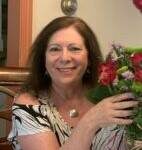
By Tanya Borodina
BERLIN — I want to share my story: Maybe it will inspire someone, maybe it will upset someone. I have an ordinary family: me, my husband, Andrei Barkovsky and our child, Allochka, now 10 years old.
I was born in Ukraine, in the city of Donetsk, but in 2014 the war in the Donbas began. On July 23 we grabbed a package with documents and our little Alla (then 2) and we fled from the war. We arrived in Kharkiv — a large, beautiful, peaceful city, the original capital of Soviet Ukraine.
We left everything in Donetsk — an apartment, our belongings, toys, photographs — and started our lives from scratch. It was not easy: to find an apartment, to issue documents for immigrants, to find a job, a kindergarten, a school. But we coped, slowly adjusting our lives.
As it turns out later, these were the brightest eight years of our life in Kharkiv. On Feb. 24, our peaceful life there ended.
I still remember how a peaceful city woke up at 4:30 in the morning from explosions and the roar of shells, tanks passing through the streets. I had deja vu. My family and I had run away from the war in 2014, but it turned out that the war was chasing us.
This is a terrible word: war. It does not even fit in my head that this is possible in the 21st century. We tried to survive inhuman conditions: without water and heating, without vegetables and fruit. Stores closed, public transport stopped running in the city, and in a panic people bought all the food and medicines in pharmacies.
We decided that the safest place in our house is the hallway, so our whole life was spent there. We slept there, ate there, Alla played there. In order not to completely disrupt our child’s psyche, we put headphones over her ears, so she could not hear the explosions outside.
Everyone texted each other: How are you? And we looked forward to an answer, any answer, because this was a guarantee that the recipient was alive.
Many people simply lived in the subway. Many were in cellars. We didn’t go outside for a month. You didn’t know when the shelling will start. All you could hear from friends is that their house was blown up, or the school was hit, and most importantly, that people were dying, ordinary, peaceful people who were going to get food or standing in line for humanitarian aid.
It’s scary, very scary: trembling in the knees, pain in the stomach and heart. Many people began to leave. Many others stayed, especially old people, sick people, those who could not walk. The other teachers and I organized our own volunteer headquarters, to help our families who remained in Kharkiv.
That is how we lived until March 26, when my husband said: You must leave the war zone; you have 15 minutes to pack. It was the most difficult decision of my life, because it is
forbidden for men to leave Ukraine.
Our train from Kharkiv to Lviv, as it turned out later, was the last evacuation train from our city.
My husband, who is 51, just stood there and cried. I always thought that he did not know how to cry at all. The moment when the train started moving and began to pick up speed especially hit us all. He was standing there, and I was on the train with the baby.
It turned out that my whole life could fit in a backpack. It feels like a dream, that now I will wake up, and everything will be fine, as before. After 17 hours on the train, you don’t feel your legs and arms any more.
And from outside we hear sirens, sirens. Kyiv is being bombed, Lviv is being bombed. We arrive in Lviv at midnight to learn that all the free buses leave at 9 a.m. There is a curfew. We need to go further. We buy a ticket to Warsaw and wait 12 hours at the border. The phone is constantly ringing: “How are you?” “When are you coming?” “Let us know.”
In Warsaw, we were met by wonderful guys from the Masorti community. We were fed, given an overnight stay and tickets to Berlin. We finally felt a complete sense of security when we reached Frankfurt on Oder, at the border with Poland.
On the second day after we arrived, our children went to school — the Masorti Jewish school. It was a real holiday. In Kharkiv the children did not even go out into the street; there was no talk of education.
Here, everyone — absolutely everyone — tried to help us, in word, deed, advice, food, toys. Because we hadn’t taken anything with us. We even forgot our toothbrushes.
What we dream of — probably like everyone else — is that the war ends quickly. I want to see and hug my husband, wipe away his tears and say everything will be fine: We are all alive.
Tanya Borodina is a mother and Hebrew teacher from Kharkiv, Ukraine.





